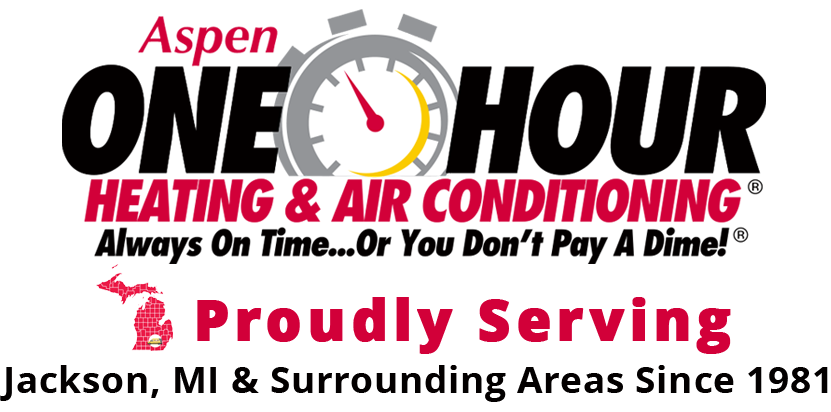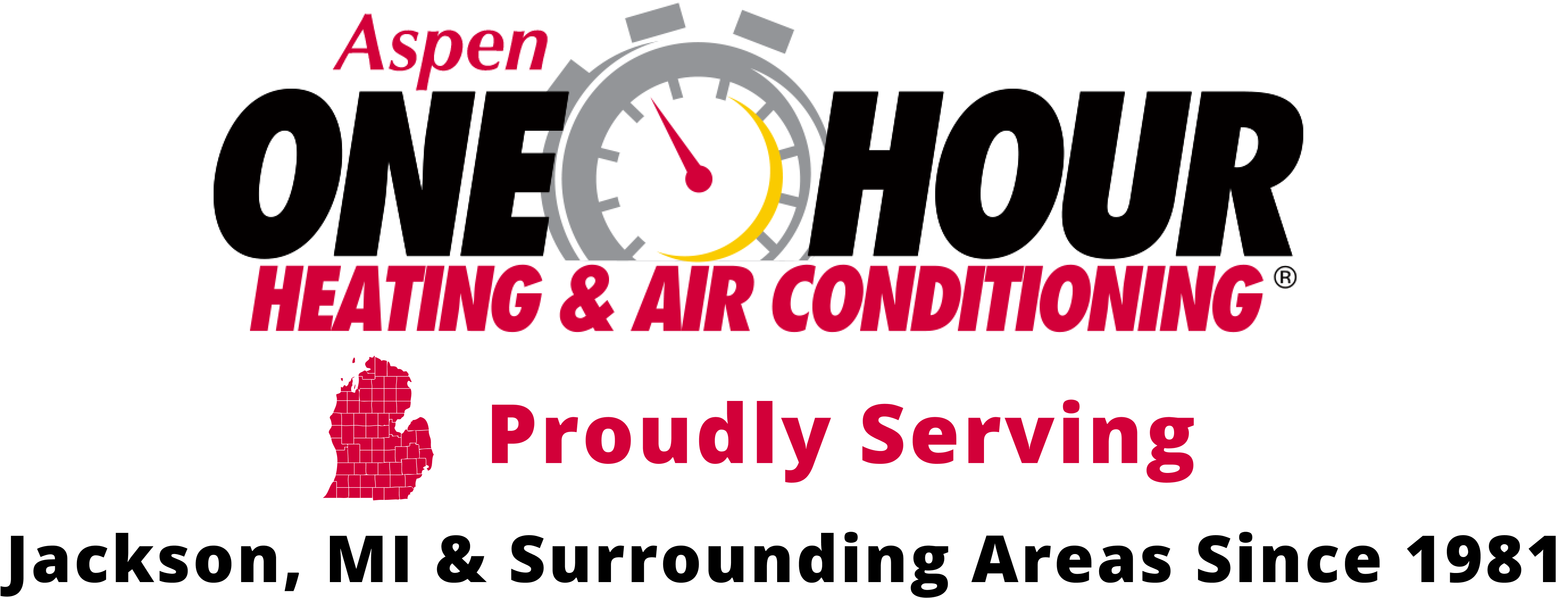Michigan's Residential Heating Experts
At Aspen One Hour Heating & Air Conditioning, we know how important it is to have a heating system that you can rely on. Heaters should work efficiently, reliably, and powerfully as possible to keep you comfy and keep your bills low. We’re ready to help you achieve all three with our reliable heater maintenance, repair, and installation services. Our team of HVAC service professionals are experts in all things heating services so you can be sure that your heating service experience will be top notch from start to finish! Call Aspen One Hour today to schedule your heating services!

Heating Services
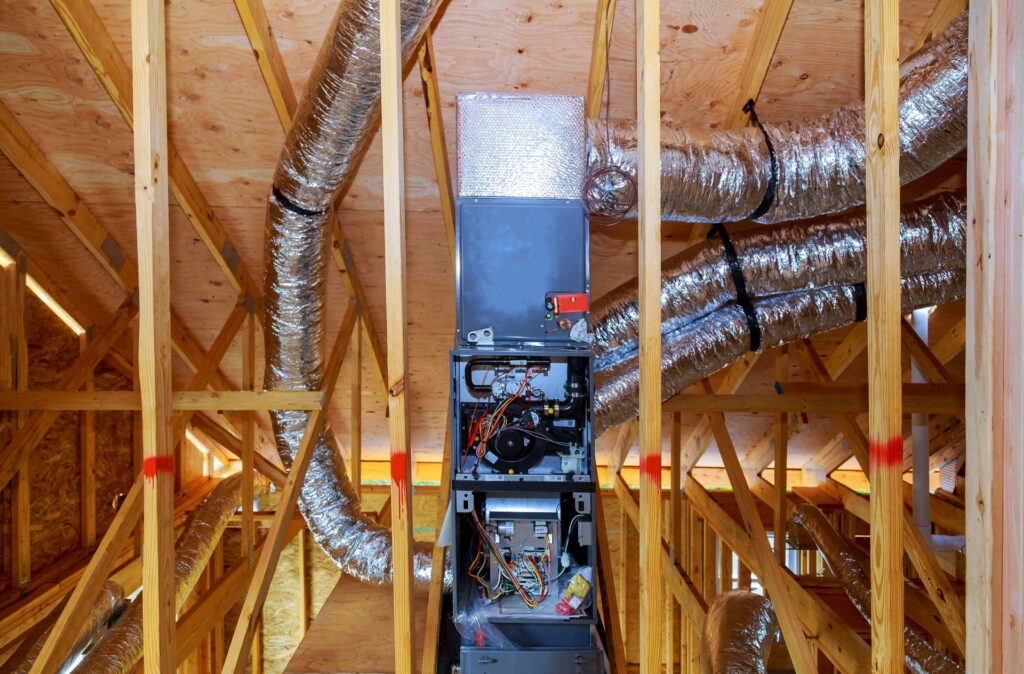
Furnace Repair
At Aspen One Hour Heating & Air Conditioning, we know how important it is to have a heating system that you can rely on. Your heating system should work efficiently, reliably, and powerfully as possible to keep you comfy and keep your bills low. Our experts are here to assist with all of your furnace repair needs!
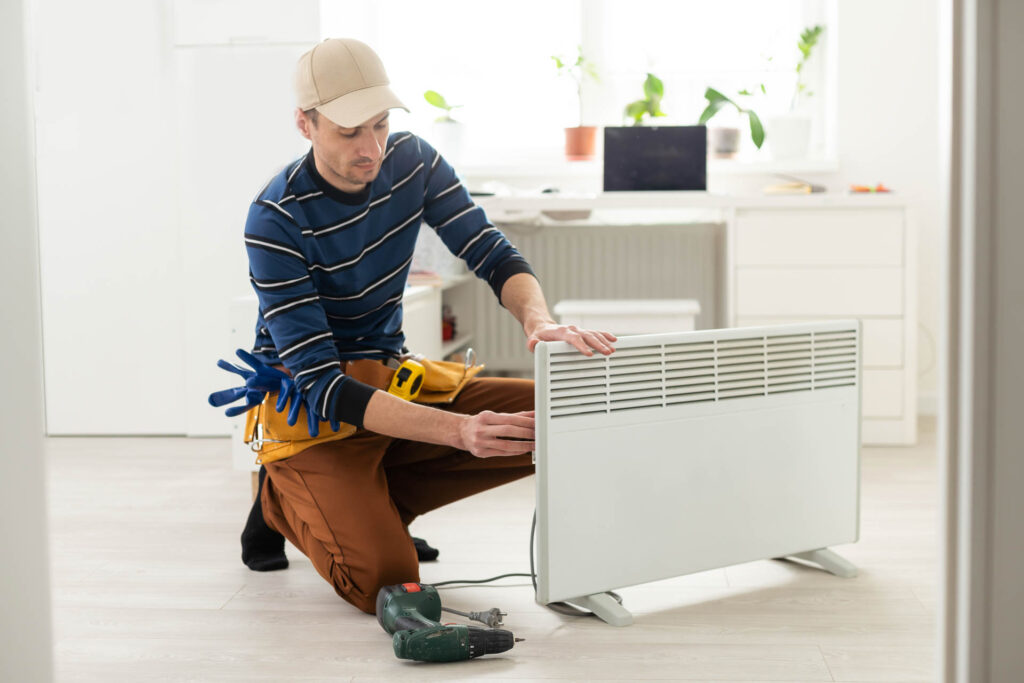
Furnace Maintenance
Problems with your forced air heating system? Regardless of the make, model or type, Aspen One Hour Heating & Air Conditioning is here to assist with all of your furnace maintenance needs. Our direct approach lessens stress and disruption, rather than adding to it. There’s no difficulty scheduling an appointment, and you can count on a uniformed professional showing up right when expected. After all, we’re Always on Time…Or You Don′t Pay a Dime!
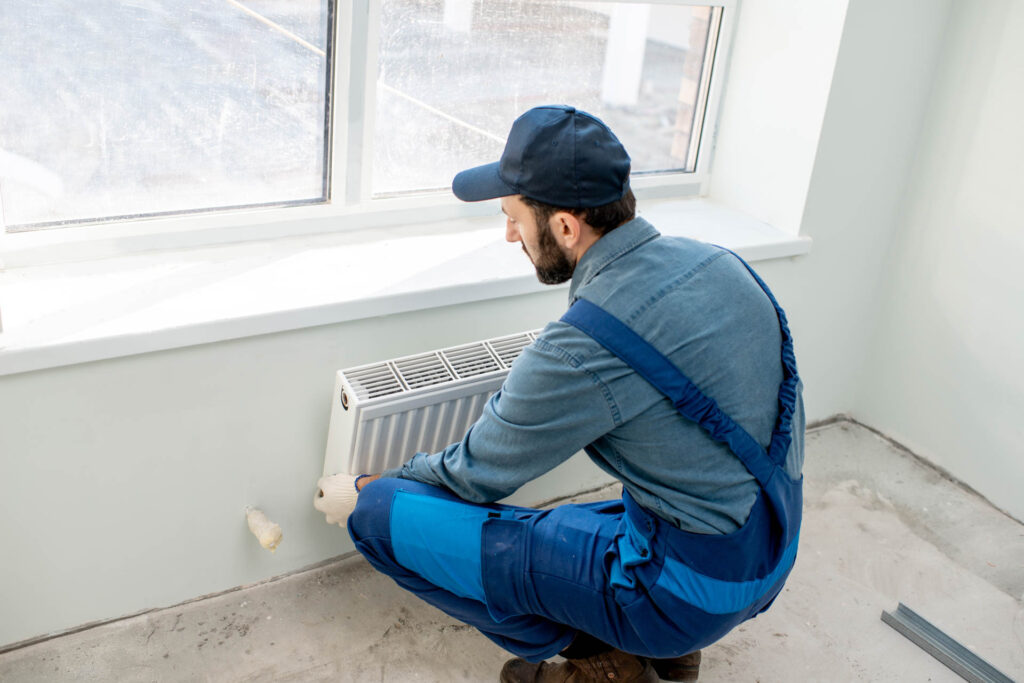
Furnace Installation
With the cold winters in and around Jackson, Michigan, it is important to have a heating system that you can depend on to keep your home comfortable, even on the most bitter days. If your furnace is starting to become less and less reliable or costing you a fortune in gas and electricity, it may be time to consider an upgrade. Sometimes, the cost of repairing an older furnace outweighs the cost of replacing the system completely. It can also be more beneficial to replace an old, energy-wasting furnace with one that is more efficient. Replacing your outdated, failing furnace can save you significant amounts of money on energy bills. Aspen One Hour Heating & Air Conditioning is here to help with all of your furnace replacement needs!
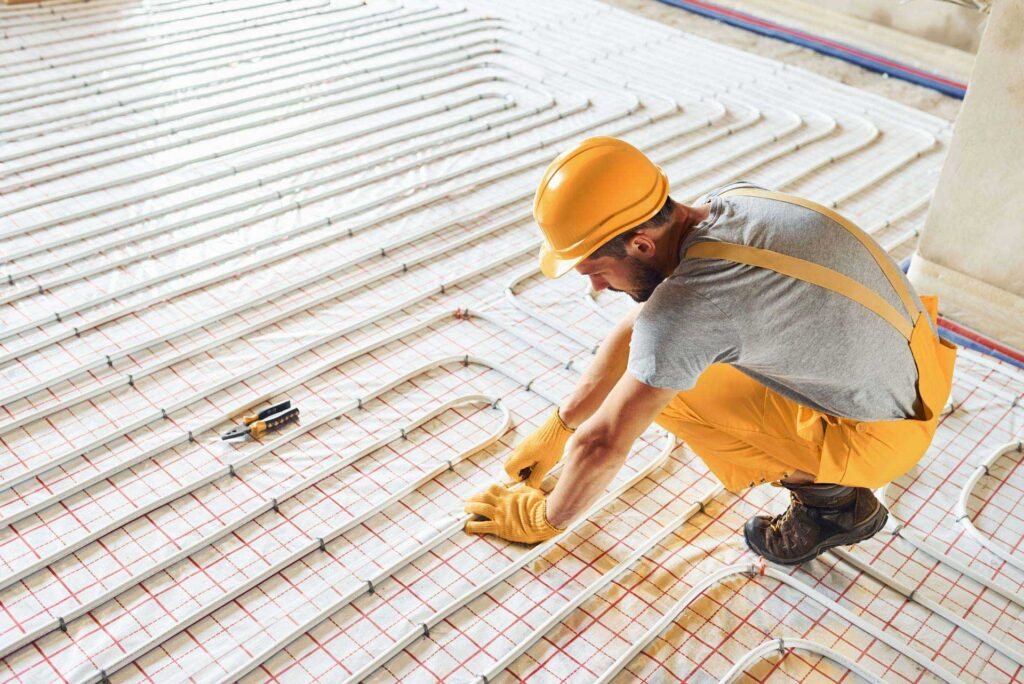
Radiant Heating Services
Radiant heating is a great alternative to other heat sources, depending on where you live. Radiant heating systems supply heat directly to the floor or to panels in the wall or ceiling of a house. The systems depend largely on radiant heat transfer — the delivery of heat directly from the hot surface to the people and objects in the room via infrared radiation. Radiant heating is the effect you feel from the warmth of a hot stovetop element from across the room. When radiant heating is located in the floor, it is often called radiant floor heating or simply floor heating. The experts at Aspen One Hour Heating & Air Conditioning are here to help with all of your radiant heating needs!
Information Center
Residential Heating Tips
Home heating systems are essential for maintaining comfortable indoor temperatures, especially during colder months. They come in various types, including furnaces, boilers, heat pumps, and electric heaters, catering to different preferences and home layouts. Furnaces and boilers distribute heat through ductwork or radiators, while heat pumps extract heat from the air or ground and transfer it indoors. Electric heaters provide localized heating and are ideal for smaller spaces. Modern heating systems prioritize energy efficiency, utilizing advanced technologies like variable-speed motors and programmable thermostats to optimize performance and reduce energy consumption. Proper maintenance and timely repairs ensure efficient operation and prolong the lifespan of these systems, contributing to a warm and cozy home environment.
How Does A Furnace Work?
- The inducer motor starts running.
- The burners ignite and burn natural gas or propane.
- The combustion chamber, also known as the burner, generates heat by combining air with a combustible material and an ignition source.
- The burner flames heat a metal heat exchanger, which is usually made of thin metal sheets or hollow metal tubing. The heat exchanger warms incoming cold air from the home’s ductwork as it passes over its surface.
- Exhaust gases, including carbon monoxide, flow out of the flue and are vented outside.
- The furnace’s blower forces the heated air into the ductwork and distributes it throughout the home.
- Cold air from the home is drawn into the furnace through the return ducts, and the process repeats until the home is warmed to the desired temperature. At that point, the furnace stops producing heat and the fuel switches off.
What Causing Uneven Heating in My Home?
Uneven heating in your home can be caused by a variety of factors, including poor insulation, blocked vents, or issues with your heating system.
If your ductwork is not properly sealed or has leaks, warm air may not be reaching certain areas of your home. Additionally, if the ducts are too small or not well-maintained, airflow can be restricted. Another common cause of uneven heating is a thermostat that’s located in an area that doesn’t reflect the temperature in other rooms, like near a window or in a drafty area. A clogged air filter can also restrict airflow, causing some rooms to be warmer than others.
Finally, certain rooms may have more exposure to the outside elements, making them harder to heat. A professional HVAC technician can perform an inspection to identify the root cause and recommend solutions.

Why Choose Us?
At Aspen One Hour Heating & Air Conditioning, we are dedicated to being the trusted heating, cooling, air quality and generator experts, and have been for over 40 years. We serve all of Jackson County and many surrounding areas and our team works hard to ensure our customers get exactly what they need. From using top-of-the-line equipment to making sure our team is well-trained, we strive to provide 5-star service each and every time. Call us today to schedule your service to find out why we have earned a reputation of integrity and quality work.

- In Business Since 1981
- Family Owned & Operated
- Free Estimates On Installations
- Low Interest Financing Available
- Emergency Service
- Available 24/7
- Licensed & Insured
- Performance & Satisfaction Guarantees
Heating F.A.Q.
Frequently Asked Questions
How Long Does a Furnace Typically Last?
The lifespan of a furnace depends on the type, maintenance, and how often it’s used. On average, a well-maintained furnace can last between 15 to 20 years. Gas furnaces tend to last around 15 years, while electric and oil furnaces may last longer. Regular servicing and proper maintenance can extend the life of your furnace, ensuring it continues to operate efficiently throughout the years.
However, as your furnace ages, it may lose efficiency and require more frequent repairs, indicating it might be time to replace it. If your furnace is nearing the end of its lifespan and you’re noticing rising energy bills or constant breakdowns, it may be more cost-effective to replace it rather than continue with repairs.
A heating professional can help assess your furnace’s condition and guide you on whether it’s time for a replacement.
What is a Programmable Thermostat, and Should I Get One?
A programmable thermostat allows you to set specific times for your heating system to turn on and off, so you don’t have to manually adjust the temperature throughout the day. This feature can help save energy by reducing heating when you’re not at home or while you’re sleeping. Many programmable thermostats allow for multiple temperature settings per day, giving you full control over your system’s performance.
If you’re looking for even more convenience, you can choose a smart thermostat, which can be controlled remotely via smartphone apps and even learns your schedule over time. By using a programmable thermostat, you can reduce energy waste and lower your utility bills. If you don’t already have one, upgrading is a cost-effective way to boost your home’s energy efficiency and comfort.
Why is My Furnace Not Turning On?
If your furnace isn’t turning on, the first step is to check the thermostat settings. Make sure it’s set to “heat” and the temperature is set higher than the current room temperature. If the thermostat is working properly, check if the furnace’s power switch is on and ensure the circuit breaker hasn’t been tripped. Sometimes, a dirty filter can restrict airflow, causing the furnace to overheat and shut down as a safety precaution.
If the pilot light is out or the ignition system is malfunctioning, the furnace won’t light. A faulty gas valve, broken blower motor, or issues with the furnace’s control board could also be the cause. If troubleshooting these basics doesn’t solve the problem, it’s best to call a professional to diagnose and fix the issue.
Why is My Heating System Blowing Cold Air?
If your heating system is blowing cold air, it could be due to several issues. First, check if your thermostat is set to “heat” mode and the temperature is set higher than the current room temperature. If the furnace has a pilot light, make sure it’s lit, as a blown-out pilot light can prevent the system from generating heat. A clogged filter or a malfunctioning blower motor could also lead to insufficient airflow, causing your system to blow cool air.
If you have a heat pump, the system might be in defrost mode, temporarily blowing cool air to prevent ice buildup. Another potential cause could be a faulty gas valve or an issue with your ductwork. A qualified technician can diagnose and fix the problem to restore proper heating.
Aspen One Hour Heating & Air Conditioning

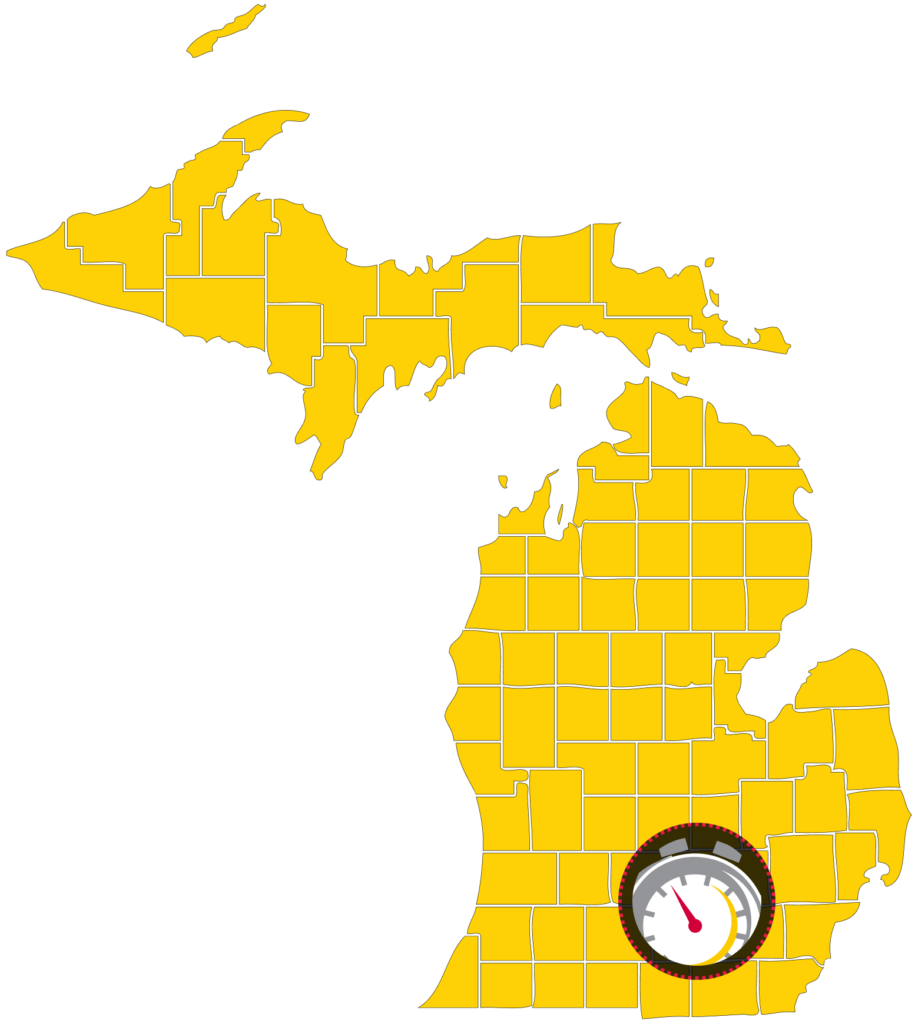
- 4131 W. Michigan Ave. Jackson, MI 49202
- Phone: (517) 879-2049
- Fax: (517) 750-0900
- Available 24/7
Contact Us
"*" indicates required fields
